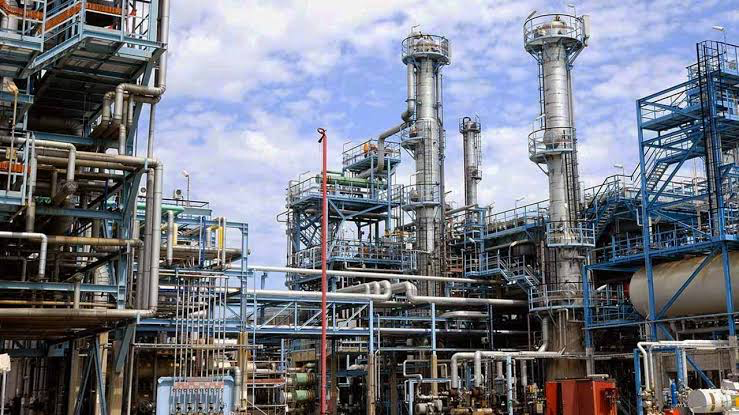In a significant development for Nigeria’s energy sector, the state-owned oil firm NNPC Ltd announced that it is set to complete test runs at the Port Harcourt refinery this month, marking a pivotal step towards resuming operations after a five-year hiatus. This move is anticipated to have far-reaching implications for Nigeria’s economy and energy independence.
The Port Harcourt refinery, a crucial component of Nigeria’s oil infrastructure, has been undergoing extensive upgrades. Once operational, it is expected to process 60,000 barrels per day initially, with plans to ramp up to its full capacity of 210,000 barrels per day later in the year. This strategic move is seen as a crucial step in reducing Nigeria’s dependence on imported refined oil products.
Nigeria, Africa’s largest oil producer, has paradoxically been heavily reliant on imported refined petroleum products due to the underutilization and poor maintenance of its domestic refineries. The Port Harcourt facility, among other state-owned refineries, has been dormant for years, posing a significant challenge to the country’s energy sector. The government’s decision to rejuvenate these refineries is a response to longstanding critiques of the sector’s inefficiencies.
The resumption of the Port Harcourt refinery is expected to bolster Nigeria’s economy significantly. By reducing the need for imported refined products, Nigeria can reduce its foreign exchange expenditure, stabilize domestic fuel prices, and potentially create a surplus for export. Additionally, the operational refinery is likely to create jobs, both directly and indirectly, and stimulate growth in related industries.
The reopening of the refinery comes at a time when Nigeria is grappling with various economic challenges, including inflation and unemployment. The move is also seen as part of the government’s broader agenda to boost national pride and self-reliance. However, it raises questions about the government’s long-term strategy for the oil sector, especially in the context of global shifts towards renewable energy sources.
While the refinery’s resumption is economically promising, it also brings environmental and health concerns, particularly regarding emissions and waste management. The refinery’s impact on the local environment and communities will be closely watched, especially by environmental advocacy groups and international observers.
The refinery’s resumption is also likely to impact international oil markets. Nigeria’s increased refining capacity could alter its trade dynamics, especially with countries that have been key suppliers of refined products. Moreover, it positions Nigeria to play a more significant role in the African oil market, potentially influencing prices and supply chains on the continent.
The successful operation of the refinery hinges on addressing technical challenges, ensuring sustainable maintenance, and managing logistical hurdles. Experts suggest that continued investment in technology and skilled personnel is essential for the long-term success of the refinery.
The Port Harcourt refinery’s reopening is a test case for Nigeria’s ability to revitalize its oil sector infrastructure. Success could pave the way for similar efforts in other state-owned refineries, potentially transforming the landscape of Nigeria’s energy sector. However, the journey is fraught with challenges, from ensuring efficient and sustainable operations to navigating the complexities of global energy politics.
The Port Harcourt refinery’s resumption is more than just a corporate milestone; it is a beacon of hope for Nigeria’s quest for energy self-reliance and economic stability. As the NNPC Ltd gears up for the refinery’s test runs, the nation watches with bated breath, hopeful for a future where it capitalizes on its vast oil resources effectively and sustainably. The coming months will be critical in determining whether this ambitious project can fulfill its promise and set a precedent for other similar initiatives in Nigeria and beyond.



